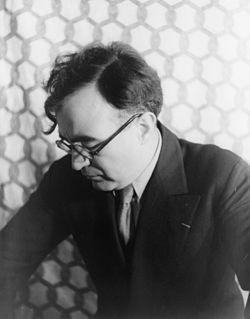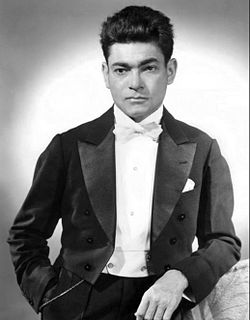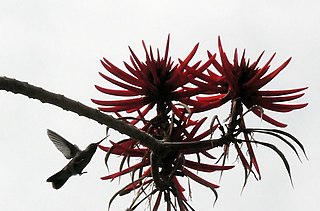Related Research Articles

Silvestre Revueltas Sánchez was a Mexican composer of classical music, a violinist and a conductor.
Sensemayá is a composition for orchestra by the Mexican composer Silvestre Revueltas, which is based on the poem of the same title by the Cuban poet Nicolás Guillén. It is one of Revueltas's most famous compositions.
Daniel Ayala Pérez was a Mexican violinist, conductor, and composer.

Enrique Arturo Diemecke is a Mexican conductor, violinist and composer. He is currently the Artistic General Director of the Teatro Colón in Buenos Aires and Music Director of the Buenos Aires Philharmonic and the Flint Symphony Orchestra in Michigan, USA.
Juan Trigos is a Mexican composer and conductor, with a career of over 25 years.
Enrico Chapela is a Mexican contemporary classical composer, whose works have been played by multiple major orchestras and has been commissioned to compose for institutions such as the Los Angeles Philharmonic, the National Center for the Performing Arts (Beijing) and the Festival Internacional Cervantino. His work is influenced by modern popular musical styles such as rock and electronic, as well as Mexican popular culture.
The Night of the Mayas is a 1939 Mexican film. It was directed by Chano Urueta. The film, which is called a "Mexican tragedy" set in the times of the Mayas, is remembered today for its musical score by the Mexican composer Silvestre Revueltas.
Sinfonía de Antígona is Carlos Chávez's Symphony No. 1, composed in 1933. The music originated as theatre music to accompany the tragedy of Antigone, hence the title of the symphony. The material was reworked into a single movement and rescored for a large orchestra. It lasts about 11 minutes in performance.

Sinfonía india is Carlos Chávez's Symphony No. 2, composed in 1935–36. In a single movement, its sections nevertheless follow the traditional pattern for a three-movement symphony. The title signifies the fact that the thematic material consists of three melodies originating from native-American tribes of northern Mexico. The symphony is Chávez's most popular composition.
Symphony No. 4, subtitled Sinfonía romántica is an orchestral composition by Carlos Chávez, composed in 1953.

Symphony No. 5, also called Sinfonía para cuerdas is a composition for string orchestra by Carlos Chávez, composed in 1953.

Janitzio is a symphonic poem by the Mexican composer Silvestre Revueltas, composed in 1933 and revised in 1936. A performance lasts about fifteen minutes. The work is a portrait of Janitzio Island in Lake Pátzcuaro, Mexico.

Colorines is a symphonic poem for chamber orchestra by the Mexican composer Silvestre Revueltas, written in 1932.
Salvador Contreras Sánchez was a Mexican composer and violinist, a member of the Grupo de los cuatro.

Planos (Planes) is a chamber-music composition by the Mexican composer Silvestre Revueltas, also slightly enlarged and scored for full orchestra and published under its alternate title, Danza geométrica. Both versions were composed in 1934, and the scores are both dedicated to the architect Ricardo Ortega.

Cuauhnáhuac is an orchestral composition by the Mexican composer Silvestre Revueltas. It exists in three versions, the first for string orchestra, the other two for full orchestra with winds and percussion. The first version takes nearly 15 minutes to perform, while the third lasts only about 11 minutes.

Ventanas (Windows) is an orchestral work by the Mexican composer Silvestre Revueltas, written in 1931. A performance of it lasts about 11 minutes.

Esquinas (Corners) is an orchestral composition by the Mexican composer Silvestre Revueltas, written in 1931 and extensively revised in 1933. The first version is in two movements with a duration of about 11 minutes in performance; the second is variously described as being in one or in three (continuous) movements with a total duration of about seven minutes. The scores of both versions are dedicated to Ángela Acevedo.

Alcancías is a composition for small orchestra by the Mexican composer Silvestre Revueltas, written in 1932. It is in three movements with a total duration in performance of about eight minutes.
References
- 1 2 3 4 Kolb Neuhaus, Roberto. "La noche de los mayas: crónica de una performance de otredad exótica". Trans (Revista Transcultural de Música), no. 18 (October 2014): 22. ISSN 1697-0101 (accessed 16 July 2017).
- ↑ Talavera, Juan Carlos (24 March 2014). "Graban y publican la versión sinfónica de "La noche de los mayas"". www.excelsior.com (in Spanish). Retrieved 9 March 2019.
- ↑ Freed, Richard. "La noche de los Mayas". The Kennedy Center.
- ↑ "Los Mayas / The Mayans / Les Mayas / Die Mayas." Artes De México, no. 88/89, 1967, pp. 93–100. Citation on p. 93. Accessed via JSTOR (subscription required).
- ↑ Catalyst 09026-62672-2 liner notes
- ↑ Silvestre Revueltas: La noche de los Mayas: versión de Paul Hindemith; Juan Trigos: Concierto no. 2 (Hispano): para guitarra y orquesta, Raúl Zambrano (guitar), Tempus Fugit Orquesta, Christian Gohmer (cond.); recorded at Sony Music, Mexico City 10–12 June 2013. CD recording. Quindecim CDQP239. Mexico: Quindecim Recordings, 2014.
- ↑ Rite: Stravinsky/Revueltas . Simón Bolívar Youth Orchestra of Venezuela, Gustavo Dudamel (cond.) CD recording. Deutsche Grammophon 0289 477 8775 4.
- ↑ Silvestre Revueltas, Musica para charlar; La noche de los Mayas. Orquesta Sinfónica de Guadalajara; José Yves Limantour (cond.). Musart MCD 3022 (LP). Mexico City: Discos Musart.